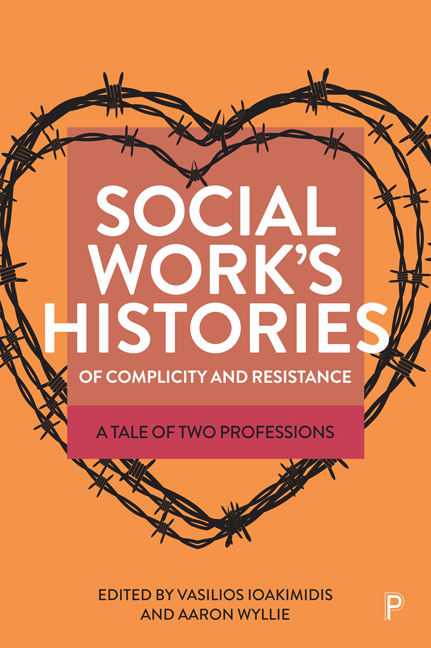Book contents
- Frontmatter
- Contents
- Notes on contributors
- Acknowledgements
- Preface
- Part I Making amends with the past
- Part II Legacies of colonialism and racism in social work
- Part III Social work’s contested ideologies
- Part IV Social work’s complicity with institutionalisation and detention
- Part V Survivor perspectives and contemporary reflections
- Index
3 - Reconciling systemic abuse of children and young women with social work’s commitment to a human rights, transformative practice
Published online by Cambridge University Press: 20 January 2024
- Frontmatter
- Contents
- Notes on contributors
- Acknowledgements
- Preface
- Part I Making amends with the past
- Part II Legacies of colonialism and racism in social work
- Part III Social work’s contested ideologies
- Part IV Social work’s complicity with institutionalisation and detention
- Part V Survivor perspectives and contemporary reflections
- Index
Summary
Introduction
Historical forced child removals, child migration and child adoptions have a long history in Australia. The systematic removal of Aboriginal and Torres Strait Islander (First Nation) children into state and religious institutional care, the forced migration of British children to Australia and the involuntary adoption of young unwed women's children are features of the welfare landscape for more than 250 years of colonial rule. Known as the ‘forgotten ones’, ‘lost innocents’ or ‘stolen children’, these children consequently experienced lifelong trauma and serious mental ill-health, leaving a trail of hurt rippling through the generations (Human Rights Commission, 2014). To this list we can add the current forced, indefinite detention of children and their families in refugee camps, as a punitive aspect of Australia's current Immigration Detention policy. There is no reason to doubt that children being held in these detention centres will experience the same long-term health and welfare impacts as those before them. What is destressing about this legacy is that these atrocities are still occurring with the over-representation of First Nation children in the criminal justice system and the continued confinement of children in detention camps with little or no attention from social work's professional body.
These past and current atrocities present social work with the challenge of how to deal with the consequences of these policies and institutional failings. An important step to tackle this issue is for the Australian Association for Social Workers (AASW) as well as the international professional bodies such as International Association of Schools of Social Work (IASSW) and International Federation of Social Workers (IFSW) on behalf of the practitioners to offer some form of acknowledgement, recompense and reflection on past hurts so as to protect clients from further harm and build trust in its work. Some responses have seen public apologies emerging from the adverse findings of many Royal Commissions and Senate inquiries, but in the main very little public outcry has emerged from the professional social work and welfare bodies. Healy (2012), referring to the Australian context, says it is no easy task for the profession to adequately address these atrocities, as social work is largely a project of the welfare state and does not exist independently of its action and policies.
- Type
- Chapter
- Information
- Social Work's Histories of Complicity and ResistanceA Tale of Two Professions, pp. 41 - 53Publisher: Bristol University PressPrint publication year: 2023



